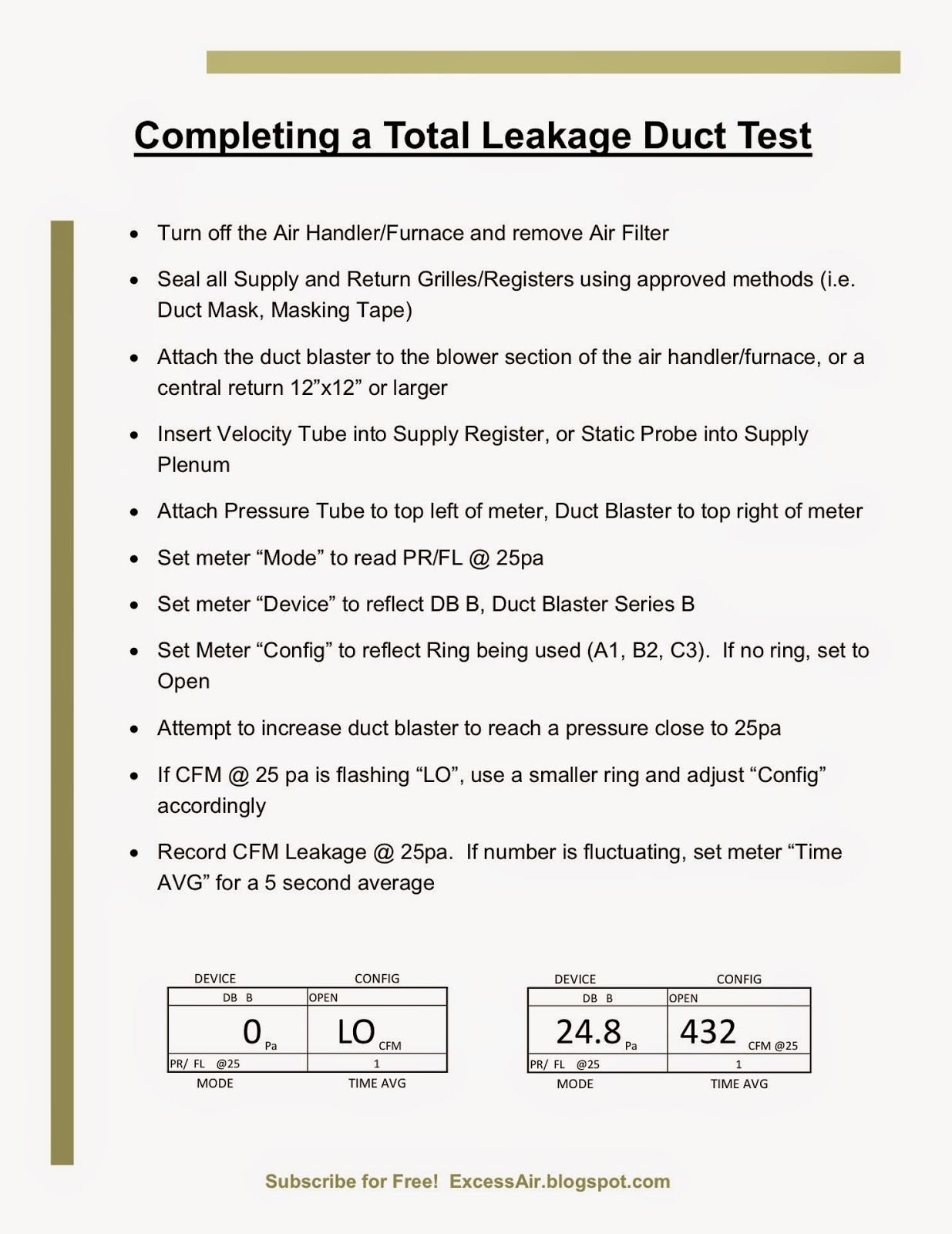
If you have not been asked to complete a duct test by your local Massachusetts Inspector, it is just a matter of time before you are surprised by this stringent/updated code requirement. Despite some push-back from Contractors and Inspectors, all of MA is required to test new or altered duct systems. All of MA adopted the 2012 International Energy Conservation Code (IECC), enforced as of August 16, 2014. Unlike the previous code, this makes what was considered the "Stretch Code" now the base residential code. Also, it pays to know their permit structure, to avoid losing what could amount to be a significant part of your profit on these jobs.
If you are working in any of the cities and towns across MA, you are required to complete a "Total Leakage Duct Test". Unfortunately for most, the new required qualification of being a HERS Rater or BPI Certified Professional can be a stumbling block. True, we have many certified individuals throughout the state - myself being one. This may be an added cost to your job, one you may not have been prepared to pay for. For New Construction, this test is typically completed by the HERS Rater as part of the building permit process. Just imagine you are asked for the duct leakage report on a retrofit, a new duct system in an existing home. Surprise, lost profit!
The code is now three times more stringent than it was last week. Gone are the days of passing a total leakage duct test by chance. We are now required to make a whopping 4CFM / 100 SqFt., or 4% leakage rate. One must take careful attention to seal all seams with UL Listed mastic in order to reach this goal. The fortunate alternative is that if all ducts are in conditioned spaces, they do not have to be tested!
Anyhow, take a look at the attached document I created, I think it will help those that are just becoming involved with Duct Testing in MA. Also, please share your experiences with the local city and town requirements by commenting below - nobody likes to be surprised.